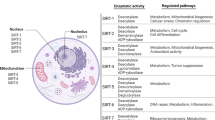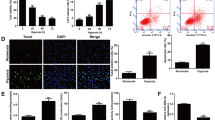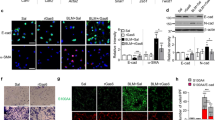Abstract—
Sepsis-induced lung injury is a clinical syndrome characterized by injury of alveolar epithelium cells (AECs). Previous investigations illustrate that exosomes secreted from adipose-derived stem cells (ADSCs) have therapeutic effects in a variety of disease treatments, but roles and mechanisms regarding ADSC-derived exosomes in sepsis-induced lung injury are unclear. In this study, high-throughput sequencing was used to explore the molecular delivery of ADSC exosomes. A sepsis-induced lung injury mouse model and a lipopolysaccharide-induced AEC damage model were used for mechanistic analysis. The results showed that ADSC exosomes have high levels of the circular RNA (circ)-Fryl. Downregulation of circ-Fryl suppressed ADSC protective effects exosomes against sepsis-induced lung injury by decreasing apoptosis and inflammatory factor expression. Bioinformatics and luciferase reporting experiments showed that miR-490-3p and SIRT3 are downstream targets of circ-Fryl. miR-490-3p overexpression or SIRT3 silencing reversed ADSC exosome protective effects. Studying the mechanism showed that overexpression of circ-Fryl promoted autophagy activation by inducing SIRT3/AMPK signaling. Autophagy activation can suppress sepsis-induced lung injury by decreasing apoptosis and inflammatory factor expression. Taken together, our results suggest that exosomes derived from ADSCs attenuate sepsis-induced lung injury by delivery of circ-Fryl and regulation of the miR-490-3p/SIRT3 pathway.





Similar content being viewed by others
AVAILABILITY OF DATA AND MATERIALS
The datasets used and/or analyzed in the current study are available from the corresponding author upon reasonable request.
References
Christ-Crain, M., N.G. Morgenthaler, J. Struck, S. Harbarth, A. Bergmann, and B. Muller. 2005. Mid-regional pro-adrenomedullin as a prognostic marker in sepsis: An observational study. Critical Care 9: R816–R824.
Lou, L., D. Hu, S. Chen, S. Wang, Y. Xu, Y. Huang, et al. 2019. Protective role of JNK inhibitor SP600125 in sepsis-induced acute lung injury. International Journal of Clinical and Experimental Pathology 12: 528–538.
Jang, E.A., J.Y. Kim, T.D. Tin, J.A. Song, S.H. Lee, and S.H. Kwak. 2019. The effects of BMS-470539 on lipopolysaccharide-induced acute lung injury. Acute Crit Care 34: 133–140.
Janicova, A., N. Becker, B. Xu, S. Wutzler, J.T. Vollrath, F. Hildebrand, et al. 2019. Endogenous uteroglobin as intrinsic anti-inflammatory signal modulates monocyte and macrophage subsets distribution upon sepsis induced lung injury. Frontiers in Immunology 10: 2276.
Yen, Y.T., H.R. Yang, H.C. Lo, Y.C. Hsieh, S.C. Tsai, C.W. Hong, et al. 2013. Enhancing autophagy with activated protein C and rapamycin protects against sepsis-induced acute lung injury. Surgery 153: 689–698.
Wang, W., X. Yang, Q. Chen, M. Guo, S. Liu, J. Liu, et al. 2020. Sinomenine attenuates septic-associated lung injury through the Nrf2-Keap1 and autophagy. Journal of Pharmacy and Pharmacology 72: 259–270.
Chen, H.H., P.F. Lai, Y.F. Lan, C.F. Cheng, W.B. Zhong, Y.F. Lin, et al. 2014. Exosomal ATF3 RNA attenuates pro-inflammatory gene MCP-1 transcription in renal ischemia-reperfusion. Journal of Cellular Physiology 229: 1202–1211.
Chen, K.H., C.H. Chen, C.G. Wallace, C.M. Yuen, G.S. Kao, Y.L. Chen, et al. 2016. Intravenous administration of xenogenic adipose-derived mesenchymal stem cells (ADMSC) and ADMSC-derived exosomes markedly reduced brain infarct volume and preserved neurological function in rat after acute ischemic stroke. Oncotarget 7: 74537–74556.
Fleig, S.V., and B.D. Humphreys. 2014. Rationale of mesenchymal stem cell therapy in kidney injury. Nephron Clinical Practice 127: 75–80.
Geng, W., H. Tang, S. Luo, Y. Lv, D. Liang, X. Kang, et al. 2019. Exosomes from miRNA-126-modified ADSCs promotes functional recovery after stroke in rats by improving neurogenesis and suppressing microglia activation. American Journal of Translational Research 11: 780–792.
Shang, Y., Y. Sun, J. Xu, X. Ge, Z. Hu, J. Xiao, et al. 2020. Exosomes from mmu_circ_0001359-modified ADSCs attenuate airway remodeling by enhancing FoxO1 signaling-mediated M2-like macrophage activation. Molecular Therapy-Nucleic Acids 19: 951–960.
Meng, L., H. Cao, C. Wan, and L. Jiang. 2019. MiR-539-5p alleviates sepsis-induced acute lung injury by targeting ROCK1. Folia Histochemica et Cytobiologica 57: 168–178.
Zhang, Y.Y., X. Liu, X. Zhang, and J. Zhang. 2020. Shikonin improve sepsis-induced lung injury via regulation of miRNA-140-5p/TLR4—A vitro and vivo study. Journal of Cellular Biochemistry 121: 2103–2117.
Jin, J., Y. Wang, L. Zhao, W. Zou, M. Tan, and Q. He. 2020. Exosomal miRNA-215-5p derived from adipose-derived stem cells attenuates epithelial-mesenchymal transition of podocytes by inhibiting ZEB2. BioMed Research International 2020: 2685305.
Avila-Portillo, L.M., F. Aristizabal, A. Riveros, M.C. Abba, and D. Correa. 2020. Modulation of adipose-derived mesenchymal stem/stromal cell transcriptome by G-CSF stimulation. Stem Cells International 2020: 5045124.
Chen, J., and M. Chopp. 2018. Exosome therapy for stroke. Stroke 49: 1083–1090.
Yang, F., X. Liao, Y. Tian, and G. Li. 2017. Exosome separation using microfluidic systems: size-based, immunoaffinity-based and dynamic methodologies. Biotechnologu Journal 12.
He, C., S. Zheng, Y. Luo, and B. Wang. 2018. Exosome theranostics: Biology and translational medicine. Theranostics 8: 237–255.
Bao, X., Q. Zhang, N. Liu, S. Zhuang, Z. Li, Q. Meng, et al. 2019. Characteristics of circular RNA expression of pulmonary macrophages in mice with sepsis-induced acute lung injury. Journal of Cellular and Molecular Medicine 23: 7111–7115.
Cinar, I., B. Sirin, P. Aydin, E. Toktay, E. Cadirci, I. Halici, et al. 2019. Ameliorative effect of gossypin against acute lung injury in experimental sepsis model of rats. Life Sciences 221: 327–334.
Cadirci, E., B.Z. Altunkaynak, Z. Halici, F. Odabasoglu, M.H. Uyanik, C. Gundogdu, et al. 2010. Alpha-lipoic acid as a potential target for the treatment of lung injury caused by cecal ligation and puncture-induced sepsis model in rats. Shock 33: 479–484.
Park, E.J., M.G. Appiah, P.K. Myint, A. Gaowa, E. Kawamoto, and M. Shimaoka. 2019. Exosomes in sepsis and inflammatory tissue injury. Current Pharmaceutical Design 25: 4486–4495.
Zhang, R., Y. Zhu, Y. Li, W. Liu, L. Yin, S. Yin, et al. 2020. Human umbilical cord mesenchymal stem cell exosomes alleviate sepsis-associated acute kidney injury via regulating microRNA-146b expression. Biotechnology Letters 42: 669–679.
Chen, H.G., H.Z. Han, Y. Li, Y.H. Yu, and K.L. Xie. 2020. Hydrogen alleviated organ injury and dysfunction in sepsis: The role of cross-talk between autophagy and endoplasmic reticulum stress: Experimental research. International Immunopharmacol 78: 106049.
Duan, W.J., Y.F. Li, F.L. Liu, J. Deng, Y.P. Wu, W.L. Yuan, et al. 2016. A SIRT3/AMPK/autophagy network orchestrates the protective effects of trans-resveratrol in stressed peritoneal macrophages and RAW 2647 macrophages. Free Radical Biology and Medicine 95: 230–242.
Zhao, W., L. Zhang, R. Chen, H. Lu, M. Sui, Y. Zhu, et al. 2018. SIRT3 protects against acute kidney injury via AMPK/mTOR-regulated autophagy. Frontiers in Physiology 9: 1526.
Funding
This study was supported by the National Natural Science Foundation of China (Grant no. 81772121).
Author information
Authors and Affiliations
Contributions
The study was designed, and funding was provided by WS; the study was conducted, and the manuscript was prepared by XZ; most experiments were performed by WS; the data were studied by SL; and samples were provided by SL. The final manuscript was read and approved by all authors.
Corresponding author
Ethics declarations
Ethics Approval and Consent to Participate
The Animal Care and Use Committee of the Shanghai Tenth People’s Hospital approved the research. We conducted postoperative animal care and treatment surgical interventions according to NIH Guide of Laboratory Animals Care and Use.
Consent for Publication
All authors agree to publish this article.
Competing Interests
The authors declare no competing interests.
Additional information
Publisher's Note
Springer Nature remains neutral with regard to jurisdictional claims in published maps and institutional affiliations.
Rights and permissions
About this article
Cite this article
Shen, W., Zhao, X. & Li, S. Exosomes Derived from ADSCs Attenuate Sepsis-Induced Lung Injury by Delivery of Circ-Fryl and Regulation of the miR-490-3p/SIRT3 Pathway. Inflammation 45, 331–342 (2022). https://doi.org/10.1007/s10753-021-01548-2
Received:
Revised:
Accepted:
Published:
Issue Date:
DOI: https://doi.org/10.1007/s10753-021-01548-2




